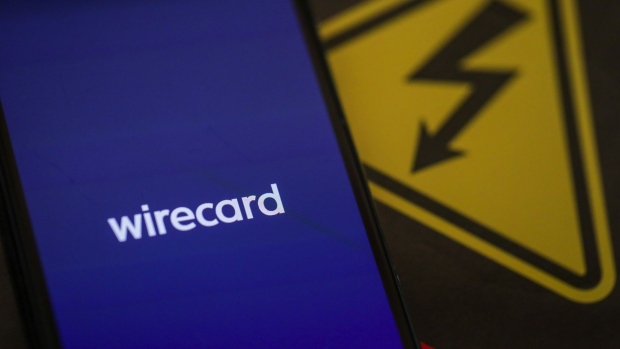Jul 3, 2020
Will Deutsche Bank Come to Wirecard's Rescue? If Only
, Bloomberg News

(Bloomberg Opinion) -- Deutsche Bank AG is lining up to buy a piece of history — a remnant of scandal-ridden Wirecard AG. It’s not the only one sniffing around. But however many expressions of interest there may be, and however credible the buyers, the proceeds from selling off even the best assets of the German payments company will be tiny relative to the losses incurred.
When Wirecard was a stock market darling, investors weren’t piling into the shares because of its Wirecard Bank subsidiary, the piece that potentially interests Deutsche Bank. The lending arm was a sideshow as the rest of the operation appeared to expand. Of course, the growth reported by the group is now heavily in doubt following the admission that the accounts overstated cash balances by 1.9 billion euros ($2.1 billion).
Deutsche Bank says it is considering providing financial support for Wirecard Bank should it be required. Precisely what that means is unclear. Wirecard’s bank is not subject to insolvency proceedings. If it needs assistance, there should be other avenues. It’s not Deutsche Bank’s job to be lender of last resort. But there could be some logic to a straight takeover at the right price.
Extreme due diligence will be critical. Wirecard Bank has looked like a simple deposit-taking institution that’s been growing nicely. Question one is whether its 1.7 billion euros of deposits have stayed put as the parent company has unraveled. Then any buyer would need to kick the tires on the credit quality of the assets.
And however much comfort Deutsche Bank got, this would be a tiny transaction. Even prior to Wirecard’s spectacular implosion, the unit’s book value was around 160 million euros. Credit quality will need to be robust to justify paying that.
At least Wirecard’s creditors’ expectations are low. The group’s loans and bonds are trading at around 17% of face value, suggesting their owners expect to collectively get back around 400 million euros of the 2.3 billion euros they are owed (assuming Wirecard drew down all its revolving credit line in full). A jumbo convertible bond is being quoted even lower. That’s backed by Wirecard but issued out of a separate entity, creating doubt as to whether its holders’ claims would rank as highly as those of other creditors.
It will take several years to adjudicate claims, so the expectation must be that recoveries will be slightly higher — but not much.
Aside from the bank, the other asset likely to attract interest is Wirecard’s U.S. business, put up for sale earlier this week. This was acquired from Citigroup Inc. in 2017. The price wasn’t given, but Wirecard did reveal an associated $200 million foreign-exchange transaction for the purposes of the deal. It also said the acquisition would add $20 million to Ebitda. Take that as a base and assume a 10-15 times valuation multiple and an exit might raise $200-$300 million, according to Mirabaud Securities analyst Neil Campling.
As for the remaining businesses, investors need to be optimistic to believe they are worth much. One explanation for the missing billions is that most of Wirecard’s operations have been loss-making for some time, and so never generated the free cash flow that was reported. Value them at, say, 100 million euros for the customer relationships and some tangible assets. Tot it all up and you can see why hopes are so faint. The one other source of compensation would be generated from claims against the company and its directors, falling back on insurance.
Wirecard’s administrator says there are “numerous interested parties” in the company’s assets. Who wouldn’t want to nose around the books of this infamous fallen technology star? But beware of thinking that Deutsche Bank, or anyone else, will truly come to the rescue.
This column does not necessarily reflect the opinion of the editorial board or Bloomberg LP and its owners.
Chris Hughes is a Bloomberg Opinion columnist covering deals. He previously worked for Reuters Breakingviews, as well as the Financial Times and the Independent newspaper.
©2020 Bloomberg L.P.